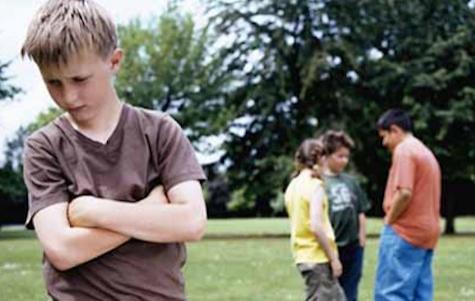Analysis of a large-scale study by the Australian Institute of Family Studies suggests a significant under-reporting of school bullying by both teachers and parents.
One in three children aged 10-11 years old report being picked on or bullied by peers in Australian schools.
Researchers report that for more than half of children who reported experiencing unfriendly behaviours, their parents were either not aware, or did not consider the actions to be bullying.
Research Fellow, Dr Jodie Lodge said that similarly, almost 4 in 5 teachers did not report the child had been a victim of bullying behaviour at age 10-11 years old.
“On the whole, parents were more likely to be aware when their child was bullied than were teachers, which may suggest that children are more likely to tell their parents than their teachers when they are victimised.”
“The research indicates that when children are bullied in multiple ways, the outcomes are likely to be more apparent, with parents being more aware when their child reported experiencing 3 or 4 different types of unfriendly behaviours from peers.”
Bullying victimisation experiences that are apparent at young ages are a precursor to such experiences as children grow, with 1 in 7 children identified as having been persistently bullied or picked on their entire school life.
This pattern is important as teachers and parents may need help in ensuring that bullying interventions are effectively targeted toward the children at greatest risk of bullying victimisation.
“Our analysis affirms the need for increased training of teachers and parents to address factors that influence how these individuals understand and respond to bullying incidents.”
“This may involve providing teacher training aimed at raising awareness of bullying behaviours, as teacher responsiveness is considered fundamental in efforts to reduce school bullying.”
Teachers may also need help in ensuring bullying interventions are effectively targeted toward the children at greatest risk of bullying victimisation. Parents may need help to recognise their child might have been bullied so they can help their child to deal with these situations.
Dr Lodge said it was important to recognise that children who bully also need help too.
“Children who bully tend to have a wide array of conduct problems and show high levels of depressive, aggressive and anti-social behaviour,” she said.
“Bullying by children is considered a stepping stone for criminal behaviours, increasing the risk of police contact when they become adults by more than half.”
Children who bully also increase their risk of later depression by 30% and require greater support for behaviour change through targeted approaches.
However, children who bully are not doomed to bully all of their life. Effective and early treatment may interrupt the risk of progressing from school bullying to later adverse life outcomes.
Parents need to take strong and immediate action to prevent bullying behaviour getting out of hand, advises the Australian Institute of Family Studies.
Parents should avoid blame and focus on potential solutions, as well as supporting school policies, supervising their child and modelling and encouraging kindness at home.
Five warning signs that a child might be exhibiting bullying behaviour:
1. Been a victim of bullying themselves
2. Want to be in control
3. Frustrated or anxious
4. In a peer group that encourage bullying
5. Increases aggression – argumentative or defiant
Five tips for parents:
1. Get involved in activities and know their friendship group
2. Talk to your child about bullying
3. Provide clear, consistent consequence for bullying
4. Teach by example
5. Get professional help from organisations like headspace


















__small.png)










